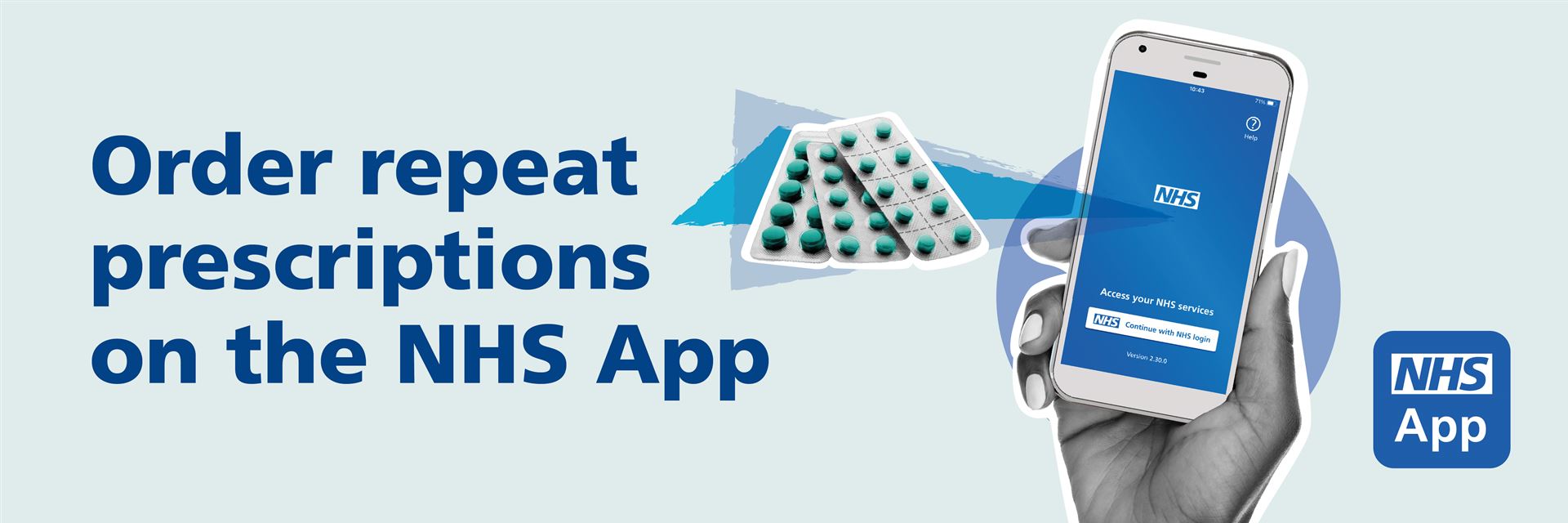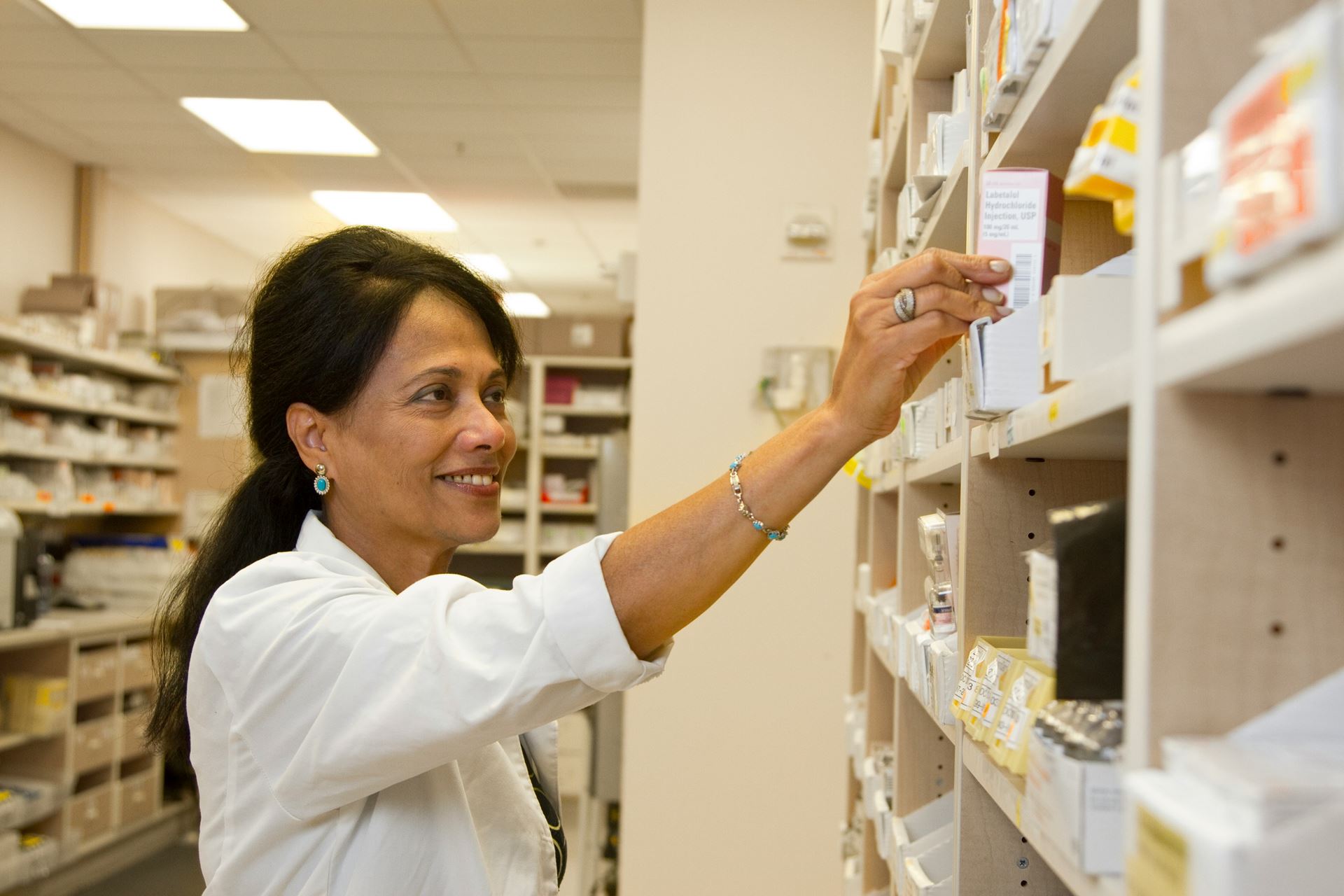Prescriptions

Ordering repeat prescriptions
The easiest ways to order repeat prescriptions are:
- Using your NHS Account (through the NHS website or in the NHS App
- Via our online service, SystmOnline (to access please click here)
These accounts show you all your repeat medicine and dosage and you can choose the ones you need.
We do not take repeat prescription requests over the phone, by email or at reception.
Collecting your prescription
You will need to choose a pharmacy to collect your prescription from. We call this nominating a pharmacy.
You can change your nominated pharmacy at any time:
- On the NHS app or website where you order repeat prescriptions
- At your GP practice
- At any pharmacy that accepts repeat prescriptions
Your prescription will be sent to your nominated pharmacy electronically and you can usually collect your prescription from the pharmacy 3 to 5 working days after you have ordered it.
You can ask most pharmacies to set a service whereby they will contact you when your prescription is ready to be collected.
We would recommend you submit your repeat request 7 days before you are due to run out to allow the community pharmacy to dispense it.
Prescription charges
These charges apply in England only. In Northern Ireland, Scotland and Wales prescriptions are free of charge.
- Prescription (per item): £9.90
- 12-month prepayment certificate (PPC): £114.50
- 3-month PPC: £32.05
- HRT PPC £19.80
If you will have to pay for four or more prescription items in three months or more than 14 items in 12 months, you may find it cheaper to buy a PPC.
Medication Reviews
We do regular virtual checks of medications on repeat prescriptions.
If we need to discuss your medication, we will contact you to make a telephone consultation.
Questions about your prescription
If you have questions about your medicine, your local community pharmacist can answer these. They can also answer questions on medicines you can buy without prescription.
The NHS website has information on how your medicine works, how and when to take it, possible side effects and answers to your common questions.
If you would like to speak to someone at the GP surgery about your prescription please call reception and ask to speak to our pharmacy team.

Community pharmacies
As qualified healthcare professionals, your local community pharmacist can offer advice on minor illnesses such as:
- Coughs
- Colds
- Sore throats
- Tummy trouble
- Aches and pains
They can also advise on medicine that you can buy without a prescription.
Many pharmacies are open until late and at weekends. You do not need an appointment.
Most pharmacies have a private consultation room where you can discuss issues with pharmacy staff without being overheard.

Did you know?
Most pharmacies can also offer prescription medicine for some conditions, without you needing to see a GP or make an appointment. This is called Pharmacy First.
Conditions they can offer prescription medicine for are:
- Impetigo (aged 1 year and over)
- Infected insect bites (aged 1 year and over)
- Earache (aged 1 to 17 years)
- Sore throat (aged 5 years and over)
- Sinusitis (aged 12 years and over)
- Urinary tract infections (UTIs) (women aged 16 to 64 years)
- Shingles (aged 18 years and over)
If you are not within these age ranges, a pharmacist can still offer advice and support decisions about self care treatment with over the counter medicines, but you may need to see a GP for treatment.
Cost Effective Prescribing
All GP practices are asked to prescribe as cost-effectively as possible. At Trowbridge Health Centre we look at our prescribing and make changes in line with national and local guidance.
This sometimes means that your medication / appliances / creams etc are amended. The changes could be due to safety concerns, evidence of effectiveness or could be due to cost effectiveness of treatment. Cost effective changes are done to ensure that NHS resources are best utilised. For most patients changes will have no effect on their treatment, however, if you find that a change to medication is affecting you please discuss with the Clinical Pharmacist at the surgery or your GP.
Page created: 10 March 2022